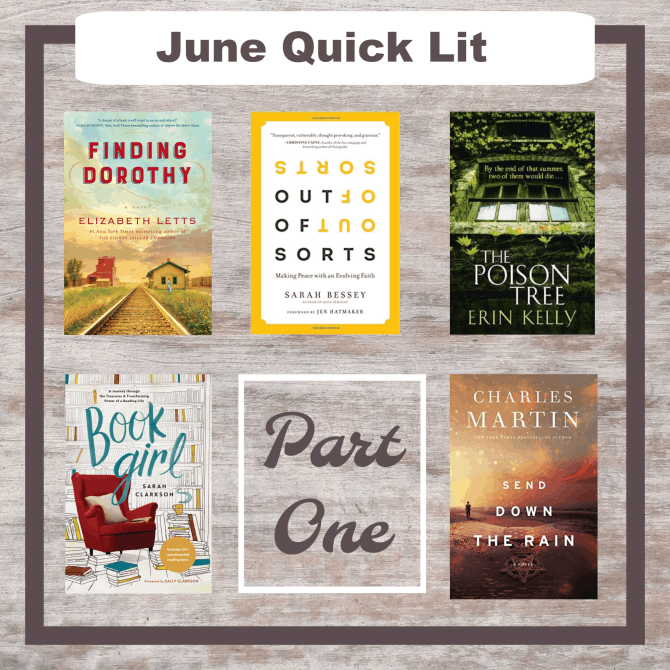Sometimes I open a book expecting to love it. . . only to find that it didn’t fully meet my expectations. On the flip side, I occasionally pick up a book I’ve hardly heard of and am blown away. I experienced both of these scenarios with the books I’m sharing today: though all were worthwhile reads that I did enjoy, at least one did not entirely live up to the hype, while two others pleasantly surprised me. The life of a reader is never dull!
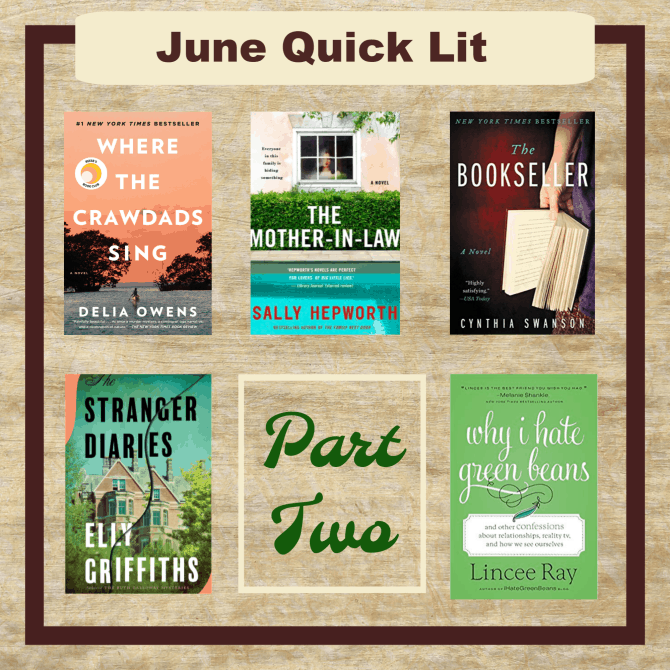
Stranger Diaries, by Elly Griffiths: Clare Cassidy is a forty-something high school English teacher specializing in the Gothic writer R.M. Holland, whose former home now houses the school where Clare teaches. Shortly before Halloween, Clare’s colleague and best friend is brutally murdered. The body is found with a handwritten quote from R. M. Holland’s most famous story, and the police have reason to believe the murderer was someone close to the victim . . . and to Clare.
As the investigation unfolds, Clare records her suspicions and fears in the pages of her diary—only to discover that her private journals suddenly contain handwritten notes from a mysterious stranger, likely the same stranger responsible for her friend’s death. Determined to keep her self and her teenage daughter, Georgie, safe, Clare begins to work closely with the police, specifically the prickly young Detective Harbinder Kaur. Before long, the murderer strikes again, and Clare begins to wonder if her diaries are somehow responsible.
This spellbinding thriller is chilling in all the best ways! The setting is dark and atmospheric, with wonderful ties to the Gothic tale at the book’s center. I enjoyed all three of our protagonists—Clare, Georgie, and Harbinder—and appreciated the chance to see the story through each of their perspectives. Though less literary than some of my favorite mysteries, the book does dive into intriguing themes of privacy, self-reflection, witchcraft, and parent/child relationships. I enjoyed reading this in the spring, but it would make a fantastic fall read!
My Rating: 4.5 Stars.
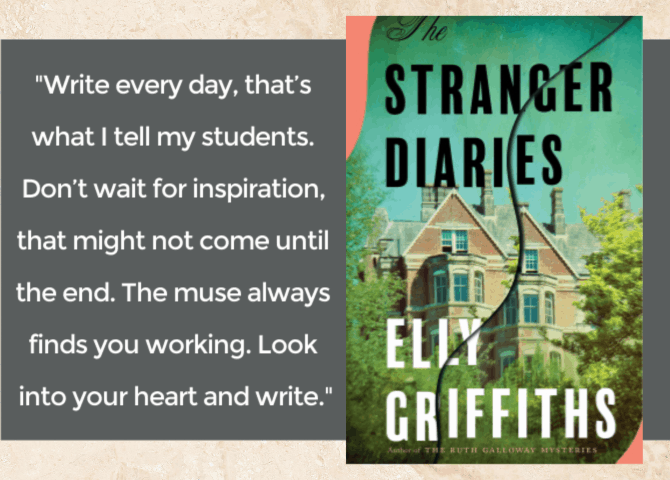
The Mother-In-Law, by Sally Hepworth: When the police arrive at Lucy’s door, she’s surprised by their news that her mother-in-law, Diana, has been found dead under suspicious circumstances. The death is, of course, a shock, but Lucy would be forgiven for feeling little remorse over the loss.
Having lost her own mother at a young age, Lucy had hoped to gain a warm and nurturing mother figure by way of her marriage to Ollie. But from the moment Lucy met Diana five years ago, she knew their relationship would be a challenging one. Diana is cold, formal, and keeps her daughter-in-law at arm’s length, despite Lucy’s attempts at a friendly relationship. To make matters even more challenging, the wealthy Diana refuses to provide financial assistance to Lucy and Ollie, now parents to three and struggling to make ends meet, or even to Ollie’s sister who is desperate for a child and needs money for IVF. The withholding of her money and her affection put a strain on their family—but was it reason for one of Diana’s children to kill her?
As the novel moves back and forth through time and between the perspectives of Lucy and Diana, we gain a better understanding of their complicated relationship that was marked by unfortunate misunderstanding, heartbreaking miscommunications, and painful differences of opinion and ideology. Through their relationship, Sally Hepworth adeptly captures the challenges and nuances of one of the most complicated relationships known to humankind: that between a woman and her husband’s mother. Though the novel centers around a mystery, it’s this exploration of family dynamics that drives the story and kept me glued to my earbuds from start to finish.
The novel also touches on other painful but pertinent issues including infertility, entrepreneurship, and the dynamic between husbands and wives over the course of a marriage. Another theme woven throughout the book is that of wealth and how we choose to spend our money, particularly whether or not wealthy parents should support their adult children or encourage them to make a life for themselves—even if this exposes them to unnecessary hardship. This is an issue that many families must navigate, but I’ve rarely seen it addressed in fiction, and the author makes some compelling points for both sides of the argument.
This was the first book I’ve read from Sally Hepworth, and it certainly won’t be my last!
My Rating: 4 Stars.
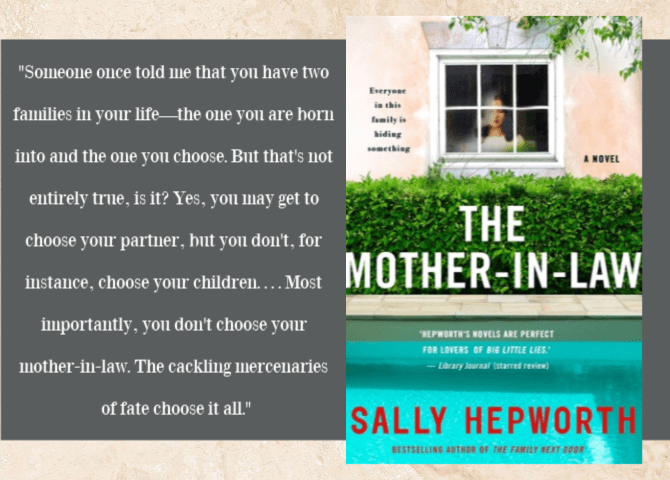
Where the Crawdads Sing, by Delia Owens: Kya is just six years old when her mother walks away from their shack in the swamps of North Carolina and never looks back. Over the next four years, Kya’s older siblings and eventually her father abandon her as well, and by the time she’s ten years old she’s living alone in the marsh, left to fend for herself. The locals know her only as Marsh Girl and taunt her every time she comes to town, but Kya finds companionship among the gulls and other marsh creatures and contentedly spends her days exploring the ecological wonders of her swampland home. As she grows older, Kya begins to yearn for human companionship that eventually comes in the form of two young men—one whom she soon learns she can trust, while the other has nothing but his own malicious interests in mind.
Kya’s lonely yet remarkable survival story is juxtaposed against chapters set a short ways in the future (1969) in which a local man has been found dead under suspicious circumstances. As the investigation unfolds, the locals begin to suspect the infamous Marsh Girl whom they do not understand and therefore deeply distrust.
This is a fascinating novel that combines a heart-rending coming-of-age story with a puzzling mystery, wrapped within Owens’ evocative portrayal of the haunting marshlands that Kya calls home. The story is imbued with science and poetry and permeated by a sense of natural beauty and intense longing—both of which are central to Kya’s isolated existence. Through the two concurrent stories we explore themes of prejudice, betrayal, justice, and kindness.
Kya is a mesmerizing character: against all odds, she is compassionate, brilliant, and confident—a survivor whose fierce courage and tender heart are both shaped by her keen observations of the marshland wildlife and of the wildest creatures of all: her fellow humans.
With so many fantastic elements going for it, I’m actually surprised that I didn’t love this one more. The writing is beautiful, but the plot moved too slowly for me; it wasn’t until the 70% mark that the story really started to draw me in. I loved the courtroom scenes (so reminiscent of To Kill a Mockingbird) and wish there had been more of this intense action throughout the book. I can see why this novel has received so much acclaim, and I agree that it is quite remarkable, but personally it just wasn’t the favorite I had hoped it might be.
My Rating: 4 Stars.
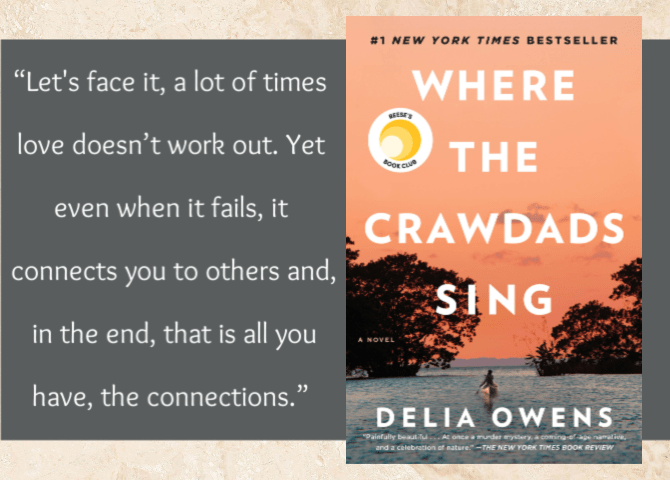
Why I Hate Green Beans: And Other Confessions about Relationships, Reality TV, and How We See Ourselves, by Lincee Ray: Lincee Ray is best known for her comical recaps of The Bachelor, which she writes religiously for pop culture websites and on her blog, I Hate Green Beans. I was introduced to Lincee through several recent podcast interviews in which she was promoting her latest book, It’s a Love Story. I adored this upbeat, slightly snarky woman with her finger on the pulse of pop culture and a huge heart for the Lord. I couldn’t wait to read her words and I started with this, her first book.
In Why I Hate Green Beans, Lincee riffs on everything from bangs and The Bachelor to dating fiascos and being a woman in the corporate world as she shares anecdotes from her own life. Lincee is a wonderful storyteller whose writing is hilarious and relatable. I especially enjoyed her stories from her time working at Disney World, her vulnerable discussion of body image and insecurity, and her thoughts on motherhood as someone who is not a mother but would like to be.
While the book is laugh-out-loud funny, Lincee isn’t afraid to delve into some harder content, including her devastating divorce from her high school sweetheart and what it’s like to live as a single woman in her early forties. Through it all, she points readers back to Jesus, who is her true source of hope and purpose. This book would be an especially great read for middle-aged single women, but even as someone who’s been married for ten years, I loved it!
My Rating: 4 Stars.
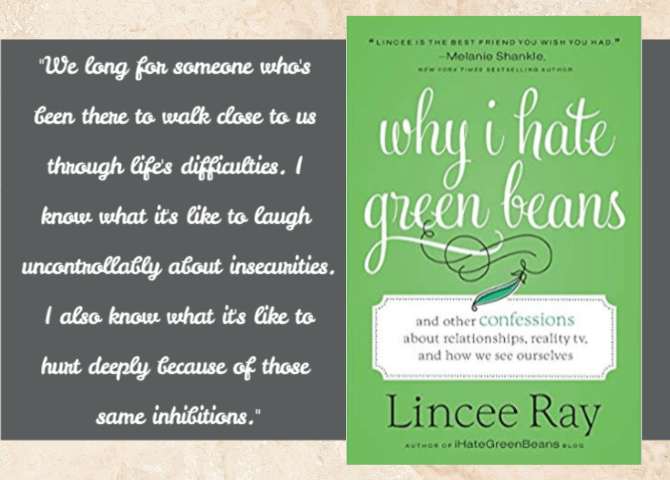
The Bookseller, by Cynthia Swanson: In the fall of 1962, Kitty Miller is a 38-year-old single woman living in Denver where she runs a small bookshop with her best friend, Frieda. While Kitty once longed for marriage and motherhood, she has come to terms with her singleness and enjoys her quiet life of working at the bookstore, tutoring her young neighbor, going out for the occasional dinner with Frieda, and spending time with her aging parents. Then the dreams begin. Every night, Kitty drifts off to sleep and finds herself living an alternate life, in which she is not Kitty, but Katharyn Andersson—a suburban housewife married to the man of her dreams, with whom she shares an elegant home and at least two beautiful children.
Before long, Kitty’s dreams begin to overtake her real life. Soon she no longer knows what’s real and what’s not. Worst of all, the alternate reality her mind has created for her is increasingly less idyllic. If she could choose to live that other life, would she?
I knew nothing about this book going into it and was drawn simply by the title and the cover. While I wished there was more book talk (there’s surprisingly little given the title), I was not disappointed overall. This book is a creative twist on the alternate life trajectory premise. As I mentioned after reading Maybe In Another Life, I enjoy these mind-bending types of stories in which we see how a solitary event can lead to vastly different outcomes. I enjoyed both versions of Kitty’s life and couldn’t wait to see how the tension between her two stories would be resolved. The book reads very much like an episode of The Twilight Zone, and the book would make an excellent movie.
The novel has a strong sense of time and place, and while I enjoyed learning more about the city of Denver and was drawn to the 1960s setting, at times it felt like the author was trying a little too hard to incorporate her research of these elements into the story, rather than simply letting them provide the backdrop to an already complex plot. Another slight complaint was that there are some storylines that are left a little too unfinished for my taste, but I otherwise found this to be an engaging, fast-paced, satisfying read.
My Rating: 4 Stars.
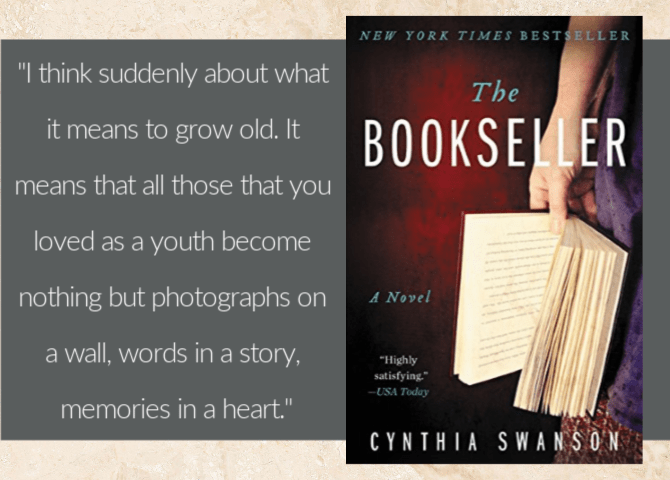
Have you read any of these titles? I’d love to hear your thoughts! What was the last book that surprised you—either in a good way, or because it was an unexpected disappointment?
In case you missed it, you can check out part one of this month’s book reviews right here.
